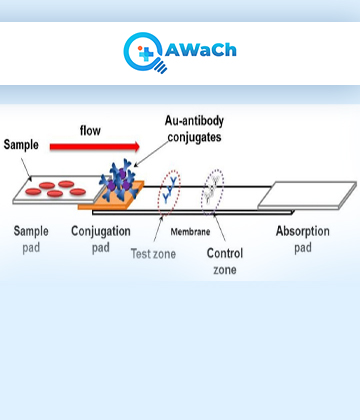Urinary NGAL
Urinary NGAL (Neutrophil Gelatinase-Associated Lipocalin) refers to the measurement of NGAL levels in urine.
Healthcare professionals measure urinary NGAL levels using immunoassay techniques to detect and monitor kidney injury using NGAL. NGAL, a protein, is produced and released by various cells, including neutrophils (a type of white blood cell) and epithelial cells of the kidneys. NGAL serves as an early marking of kidney injury or insult, playing a role in the assessment and early detection diagnosis of acute kidney injury (AKI).When the kidneys are injured or under stress, NGAL levels increase rapidly in both blood and urine. Urinary NGAL Laboratory tests can measure levels to detecting and monitoring kidney injury. This will be especially valuable for early identification of. AKI, allowing for timely intervention and management.
What is Urinary NGAL ?
Healthcare professionals commonly conducting urinary NGAL testing in hospital settings, particularly within critical care units, where patients might face an elevated risk of developing. AKI. It can be using in various clinical scenarios, such as after surgery, in cases of sepsis, or when monitoring the response to certain medications that may impact kidney function.Typically, Healthcare professionals employ immunoassay techniques to measure urinary NGAL levels, utilizing specific antibodies for detecting and quantifying NGAL protein in urine samples. The results are typically reporting as ng/mL (nanograms per milliliter) or as a ratio to creatinine concentration to accommodate variations in urine dilution. Healthcare professionals should be responsible for interpreting urinary NGAL results. experienced in evaluating kidney function and related conditions.
Currently the gold standard for detection of acute kidney injury (AKI) and chronic kidney disease (CKD) is serum creatinine, however serum creatinine is a late biomarker and it very less sensitive and specific for detection of kidney injury. Non-renal factors impact serum creatinine levels, which can lead to delays in detecting of acute kidney injury and This puts the patients at risk of renal failure. On the other hand, uNGAL serves as a highly sensitive and early biomarker for AKI. QAWaCh Bio has developing a 10-minute point-of-care test called ‘InstaNGAL®’ that using its uniquely developing platform called Q-plat to estimate uNGAL using a combination of a lateral flow assay The system consists of a testing card and a smartphone application.

Neutrophil gelatinase-associated lipocalin (NGAL) NGAL, a protein primarily expressed in neutrophils (a type of white blood cell) and other cells like kidney tubular cells, plays a crucial role in various physiological and pathological processes, particularly in inflammation, infection, and kidney injury. As a member of the lipocalin protein family, NGAL can bind to different ligands, including iron-containing siderophores, bacterial lipopolysaccharides, and specific matrix metalloproteinases (MMPs). This binding ability enables it to play a role in modulating the immune response and tissue remodeling.
Strength:
NGAL's strength arises from its role as a significant biomarker, especially in the context of kidney injury. It acts as an early indicator of kidney injury or insult, releasing in response to kidney damage even before traditional markers like serum creatinine exhibit significant changes. This early detection capability is invaluable for promptly identifying acute kidney injury (AKI) and initiating appropriate interventions.
Advantages:
The advantages of NGAL include its rapid response to kidney injury, making it a valuable tool for early detection and prediction of AKI. This timely detection facilitates swift medical intervention and management, potentially improving patient outcomes. NGAL's association with inflammation and tissue damage also making it a potential biomarker for assessing disease severity and prognosis in conditions beyond kidney injury.
Recognitions:
NGAL is recognized for its pivotal role in the early diagnosis and monitoring of AKI. Its use as a biomarker has significantly contributed to healthcare professionals' ability to identify kidney damage promptly and provide timely care.
Innovation:
Ongoing research continues to explore the full range of NGAL's functions and its potential as a diagnostic and therapeutic target in various medical conditions. NGAL represents an innovative approach to early disease detection, particularly in the context of kidney injury, where early intervention can have a substantial impact on patient outcomes.
